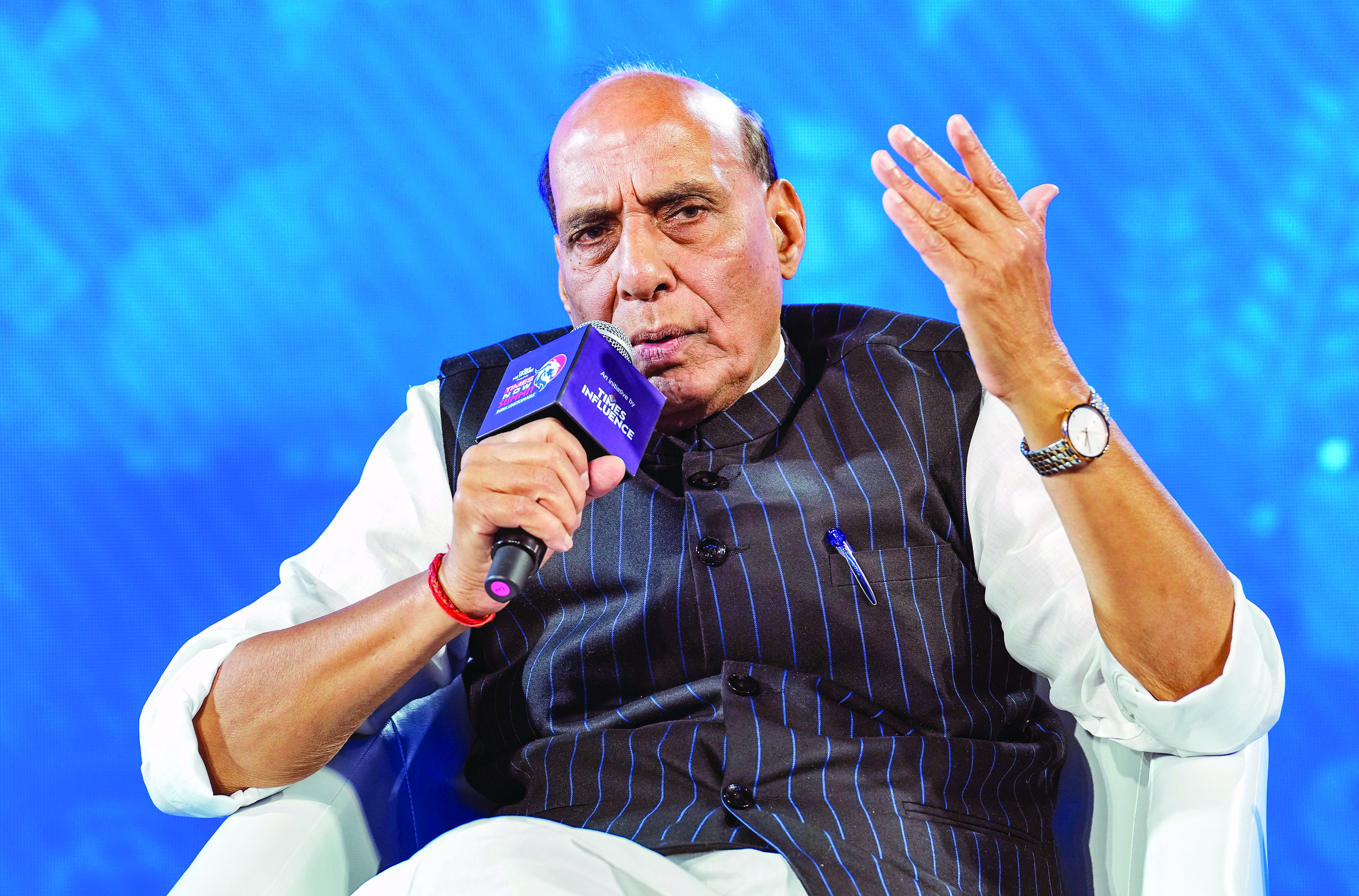LS elections: Rajnath to head BJP’s 27-member manifesto committee

New Delhi: With the general elections in India approaching next month, the ruling Bharatiya Janata Party (BJP) has announced its election manifesto committee comprising 27 members. The committee is led by a senior minister from the Modi Cabinet Rajnath Singh, who also serves as the Defence minister in the current government.
The manifesto is expected to be meticulously finalised, with insiders indicating a focus on targeting beneficiaries of Central government schemes, influenced by the outcomes of the recent Viksit Sankalp Yatra. The BJP aims to secure a third consecutive term in power in India.
Senior Union Ministers have been appointed to key roles to oversee the manifesto’s formulation. Finance Minister Nirmala Sitharaman will serve as the convener, with Trade Minister Piyush Goyal as the co-convener. Other ministers, including Arjun Munda, Bhupendra Yadav, Arjunram Meghwal, Kiren Rijiju, Aswini Vaishnav, Smriti Irani, Dharmendra Pradhan, and Rajeev Chandrashekhar, are also part of the committee. Additionally, newly elected Chief Ministers Vishnu Deo Sai (Chhattisgarh), Mohan Yadav (Madhya Pradesh), and Assam CM Himanta Biswa Sarma are included.
The BJP has named its election manifesto ‘Sankalp Patra’. In line with its campaign slogans from previous elections like ‘abki baar Modi sarkar’ in 2014 and ‘phir ek baar Modi sarkar’ in 2019, the party’s new chant for the upcoming Lok Sabha elections is ‘abki baar 400 paar’. Prime Minister Narendra Modi aims for a third consecutive term and has set a target of securing 370 seats out of the 543 contested in India’s Lok Sabha elections.
Manifestos play a crucial role in electoral politics, outlining a political party’s promises during an election season, which voters consider in making their decisions. During the 2019 general election, the BJP emphasized national security, border security, terrorism, farmer welfare, the construction of Ram Mandir, and Article 370, among others.
However, in 2015, the Supreme Court of India reportedly dismissed a Public Interest Litigation regarding this issue, ruling that existing legal frameworks do not hold a political party accountable or liable for failing to fulfil its manifesto promises. Despite this, the Election Commission introduced broad guidelines in 2013 under the ‘Manifesto’ section of the Model Code of Conduct, as directed by the Supreme Court in a separate case. However, these guidelines primarily address the nature of promises made rather than establishing accountability.



